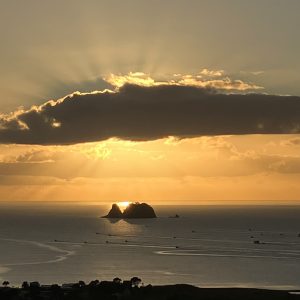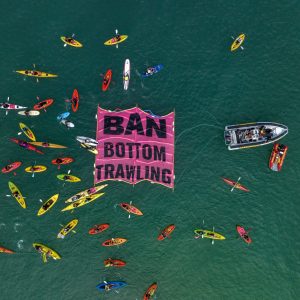A recreational fishing park has been proposed for both the Hauraki Gulf and Marlborough Sounds. It is important to examine this proposition to test if it is affordable and if it sets a precedent for the future.
The Government has signaled it has around $20 million to pay compensation claims from displaced commercial fishing interests.
While the principles underpinning compensation have yet to be defined or discussed, there is a risk that the recreational fishing parks will need to be kept small and limited to a few, selected species simply to reduce compensation claims.
In the Hauraki Gulf the area being proposed for a park makes only a marginal change to industrial fishing (trawl and seine), and impacts mostly a handful of small-scale fishers dependent on large companies for quota.
In the Marlborough Sounds the proposed park matches the Blue Cod Management Area.
The main reason for limiting the park size to one that makes almost no difference to existing commercial fishing is the spectre of compensation – the government is wary of the price it may have to pay commercial interests to leave the park.
Alarm bells are immediately set off if the costs of establishing recreational fishing parks under the new Marine Protected Areas legislation means they can only ever be established in small areas seldom used for commercial fishing. It seems to lock in a policy whereby no further parks will ever be affordable, unless they are in areas of limited commercial interest, or affect few species as possible.
An expensive proposal
Offering compensation as a sweetener to successfully establish a recreational fishing park in the Hauraki Gulf and Marlborough Sounds might be politically expedient, but we need to think about other, less populated regions.
A recreational fishing park may never be affordable for Northland, the Bay of Plenty and Hawkes Bay because future governments may not be willing to use taxpayer funds to satisfy compensation demands from commercial fishers.
Aside from that risk, consideration also needs to be given to the effect of displacing effort into surrounding waters. For example, limiting commercial fishing in the Hauraki Gulf means effort is likely to move into waters off the Bay of Plenty, east and west Northland.
Given our understanding of current stock levels and limited fish movement between these areas it is unrealistic to think that the areas where recreational fishing is already poor could cope with an increase in commercial harvesting.
Clearly we need to stop and consider the costs, benefits and long-term effects associated with recreational fishing parks because the ultimate price may be too high.
Is compensation realistic?
Threats of compensation claims have been an effective tool used by commercial fishing interests, against successive Ministers and Ministries, to maintain current Total Allowable Commercial Catches (TACCs). Compensation has again become a hot topic, this time in relation to establishing recreational fishing parks, but is compensation a realistic demand?
In our view paying compensation is neither obligatory nor sensible.
It is proposed to compensate quota owners when the impact of a park is deemed to be “materially significant”.
Reference is made to compensation available to commercial fishers displaced by marine farming activities. It is unclear how much, if any, compensation has been paid historically to these affected parties but it will be a question we raise with the Ministry over the next few weeks.
There are a lot of small-scale fishers that contract to quota holders. It is these people who would be most affected by a park yet they will receive no redress.
What’s more, if the quota holder is free to take exactly the same catch outside the Park then what precedent is being set?
Dishing out compensation to large quota shareholders for minimal change is a waste of taxpayer dollars, a taxpayer’s gift to the privileged.
New Zealand’s Exclusive Economic Zone (EEZ), its minerals and marine resources are the property of the State, and may be made available from time to time for commercial use, but cannot be gifted to others (NZ cannot buy Fiji’s EEZ).
If the Government wishes to establish recreational fishing parks, and in doing so displace or remove commercial fishing, it has the authority to do so.
If the Government decides to use our taxpayer funds to make such a transition acceptable to those being displaced then it is free to do so – but not on the basis of compensating for loss of property.
The Government is encouraged to think very carefully before establishing precedents on superficial advice, when these precedents risk preventing further changes in the use of New Zealand’s inshore fishery.





